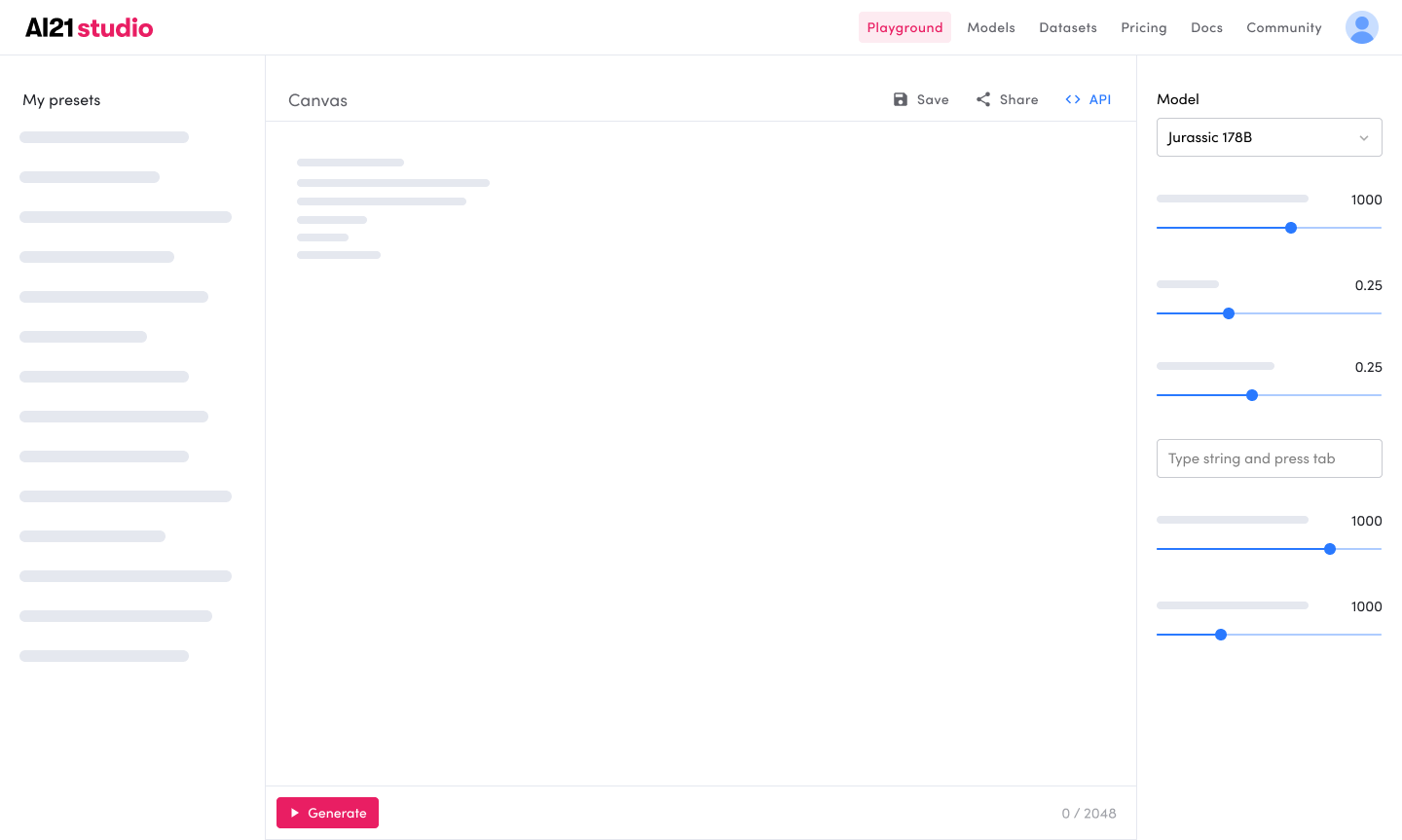Generative AI startup AI21 Labs lands $155M at a $1.4B valuation
AI21 Labs, a Tel Aviv-based startup developing a range of text-generating AI tools, has raised $155 million in a Series C funding round led by Walden Catalyst, Pitango, SCB10X, b2venture, Samsung Next and Amnon Shashua, the founder of Intel-owned Mobileye and an AI21 Labs co-founder. Google and Nvidia also participated.
The tranche, which brings AI21 Labs’ total raised to $283 million, values the company at $1.4 billion — a bit higher than the figure The Information reported earlier today ($1.2 billion).
“AI21 Labs came out of stealth in October 2020 with our first launch of [AI writing tool] Wordtune,” Yoav Shoham, one of AI21 Labs’ co-CEOs, told TechCrunch via email. “Since then, we’ve only managed to grow, more than doubling our workforce with plans to add even more employees.”
AI21 Labs was founded in 2017 by Shashua, Shoham and Ori Goshen, the startup’s other co-CEO. Shoham, a professor emeritus at Stanford, previously sold two companies to Google, the time management app Timeful and social network friends organizer Katango. Goshen is also a serial entrepreneur, having co-founded and led several Israel-based tech companies, including the telco analytics firm Crowdx.
AI21 Labs’ flagship product is AI21 Studio, a pay-as-you-go developer platform for building custom text-based business apps off of AI21’s proprietary text-generating AI models — including its cutting-edge Jurassic-2 model. The startup also sells access to the aforementioned Wordtune, a multilingual reading and writing AI assistant akin to Grammarly.
Customers can tap AI21 Labs’ platform via APIs for specific generative AI use cases, like summarization, paraphrasing and grammar and spelling correction. The startup’s models support a growing number of languages, including Spanish, German, Italian and Dutch.
AI21 Labs competes with an expanding roster of startups and incumbents in the red-hot generative AI space.
Google, AWS and Microsoft offer tooling comparable to AI21 Studio, as do startups like Cohere, OpenAI and Anthropic (and to a lesser extent marketing-focused vendors such as Jasper, Regie and Typeface). And AI21 Labs is at a funding disadvantage; OpenAI has raised $11.3 billion to date, while Anthropic and Cohere have raked in $1.6 billion and $435 million, respectively.
But Shoham asserts that AI21 Labs’ solutions are superior in several aspects, despite looking similar on the surface and not having the benefit of a higher R&D budget.
For one, Shoham says, they’re developed on “some of the world’s largest and most sophisticated large language models” and offer “more refined control” than many generative AI apps on the market. Moreover, they’re trained on up-to-date data, unlike text-generating models trained on older data, which can’t accurately answer questions about current events.

AI21 Labs offers a range of tuning parameters to customize the output of its language models, which range from small, fast models to larger and more sophisticated offerings. Image Credits: AI21 Labs
“The AI21’s AI systems are easy to integrate and generate reliable, trustworthy and accurate results,” Shoham said. “The quality and quantity of training data is a huge challenge in the industry. We’ve worked hard to ensure that we’re using up-to-date data, constantly training our models on additional data and working to ensure that the data used is reliable and trustworthy.”
Having not tested AI21 Labs’ products recently, I can’t speak to the veracity of those claims. But exaggerated or no, AI21 Labs appears to be gaining some traction despite its disadvantages.
Shoham — who wouldn’t reveal the size of AI21 Labs’ customer base, save that it includes “several” Fortune 100 companies — says that Wordtune alone has over 10 million users. And AI21 Labs was a launch partner for Bedrock, Amazon’s generative AI app development platform.
Shoham says that the latest funding tranche will allow AI21 Labs to accelerate its R&D efforts and “reach its goal of developing the next level of AI,” with “the capabilities of reasoning across many domains.” AI21 Labs also plans to pursue more partnerships with companies “across the entire tech ecosystem” and increase its 200-person headcount, with a principal focus on roles in research and business development.
AI21 Labs continues to build out its C-Suite, as well, recently hiring Pankaj Dugar, a former Google and Databricks exec, as its SVP of go-to-market and GM of North America.
It’ll certainly need the money, given the capital-intensive nature of developing large language models.
According to The Information, OpenAI spent $540 million last year creating ChatGPT. And AI21 Labs’ own research pegs the expenses for training a text-generating model with 1.5 billion parameters (i.e. variables that the model uses to generate and analyze text) at as much as $1.6 million. For reference, the predecessor to AI21 Labs’ Jurassic-2 model, Jurassic-1, contained 178 billion parameters.
That’s not accounting for hosting costs to serve the models.
OpenAI was at one point reportedly paying up to $700,000 a day to keep the infrastructure hosting ChatGPT up and running. Back-of-the-napkin math pegs the cost of running a model the size of GPT-3, and older OpenAI-developed model, at $87,000 per year on a service like AWS.
AWS counts AI21 Labs as a partner, so it’s not clear if there’s some sort of volume discounting in play. But I’d wager to say that it’s not insignificant overhead.
“We’ve focused on growing responsibly, allowing us to continue to grow and expand, bringing our customers the most up-to-date, trustworthy AI possible,” Shoham said.


